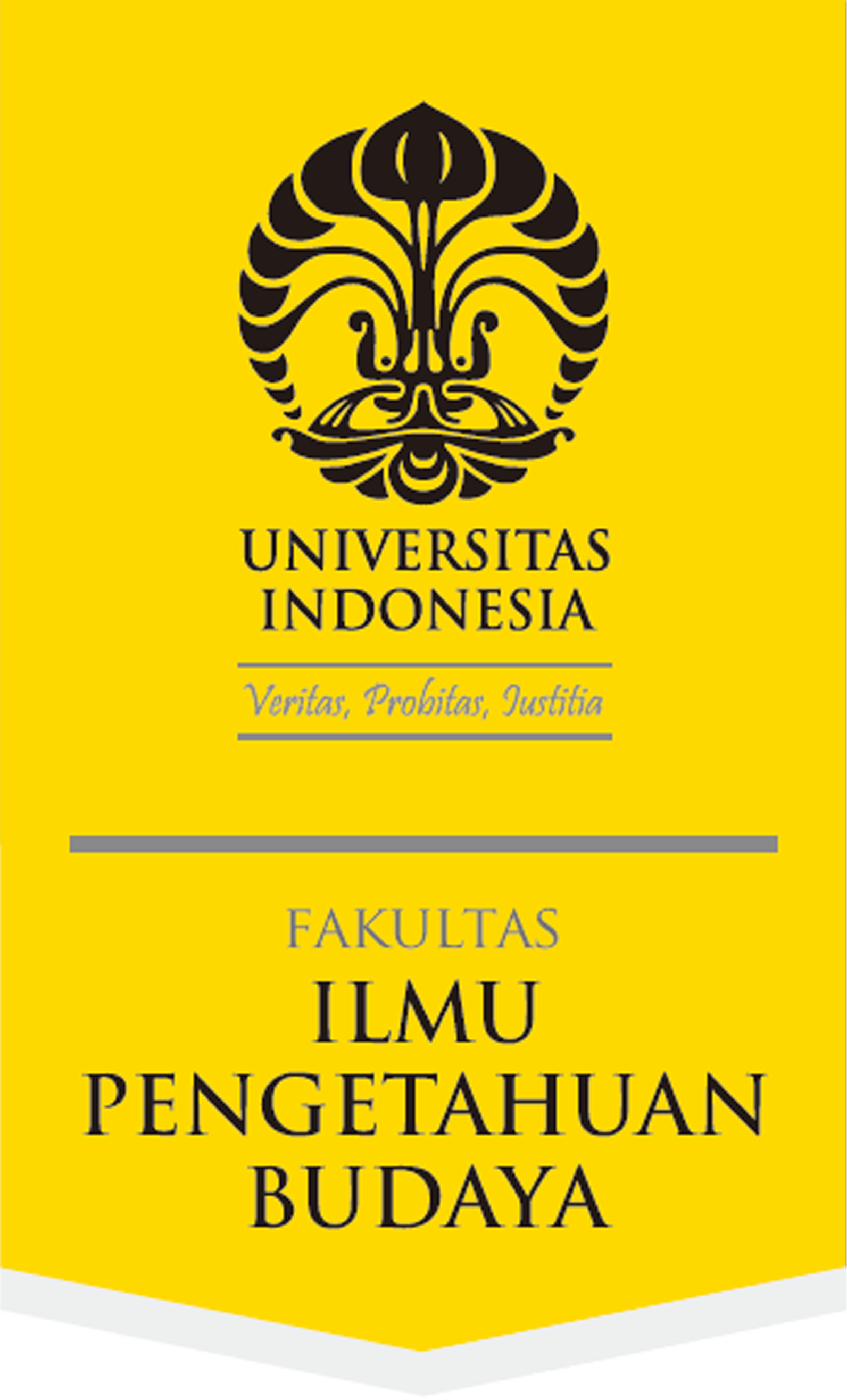Abstract
The suffix nya is one of the most frequent and polysemic suffixes in Indonesian. It can provide definite determination and topicalization. The "Verb nya", which often appears in a topicalized subject Noun Phrase (NP), is generally labelled as a deverbal noun. Nevertheless, many syntactic constraints set it apart from Indonesian deverbal nouns. "Verb nya" must be complemented by a NP, which can easily be reconstructed as a former subject: a sentence is topicalized and thus becomes a noun clause, generally the subject of the main clause Verb Phrase (VP). I argue that "Verb nya" is a subordinate noun clause, almost always conveying causality. This causal noun clause, an innovation in formal written Indonesian (especially in the media), seems to fill a "gap": the impossibility of beginning a sentence with a subordinating morpheme ('that', 'because').
References
Arka, I Wayan. 2011. “On modality and finiteness in Indonesian; Complexities of =nya nominalization”. [Paper, Workshop on TAM markers and evidentiality in Indonesian Languages, Tokyo University of Foreign Studies, 17-18 February; Http://lingdy.aacore.jp/en/contact/index.html.]
Chafe, Wallace L. 1994. Discourse, consciousness, and time; The flow and displacement of conscious experience in speaking and writing. Chicago: University of Chicago Press.
Comri, Bernard. 1976. Aspect; An introduction to the study of verbal aspect and related problems. Cambridge: Cambridge University Press.
Culioli, Antoine. 1999. Pour une linguistique de l’énonciation; Formalisation et opérations de repérage (Tome 2). Gap: Ophrys.
Englebretson, Robert. 2003. Searching for structure - the problem of complementation in colloquial Indonesian conversation. Amsterdam: John Benjamins.
Grangé, Philippe. 2013. “Aspect in Indonesian; Free versus bound markers”, NUSA, Linguistic Studies of Indonesian and Other Languages in Indonesia 55: 57-79.
Himmelmann, Nikolaus P. 2005. “The Austronesian languages of Asia and Madagascar; Typological characteristics”, in: K. Alexander Adelaar and Nikolaus P. Himmelmann (eds), The Austronesian languages of Asia and Madagascar, pp. 110-181. New York: Routledge.
Kaswanti Purwo, Bambang. 2008. “Contemporary Indonesian syntax; Some evidence of innovations and language change”. [Paper, Twelfth International Symposium on Malay/Indonesian Linguistics (ISMIL 12), Leiden, 25-27 June.]
Proudfoot, Ian. 2008. “Malay Concordance Project”. [Http://mcp.anu.edu. au/, consulté le /; accessed on 21-02-2013.]
Steinhauer, Hein. 2001. Leerboek Indonesisch. Leiden: KITLV Press.
Steinhauer, Hein. 2008. “Does Indonesian have adjectives?”. [Paper, Twelfth International Symposium on Malay/Indonesian Linguistics (ISMIL 12), Leiden, 25-27 June.]
Vendler, Zeno. 1967. Linguistics in philosophy. Ithaca: Cornell University Press.
Yap, Foong Ha. 2011. “Referential and non-referential uses of nominalization constructions in Malay”, in: F.H. Yap, Karen Grunow-Hårsta, and Janick Wrona (eds), Nominalization in Asian Languages; Diachronic and typological perspectives, pp. xvii, 627-658. Amsterdam: John Benjamins.
Recommended Citation
Grangé, Philippe
(2015)
"The Indonesian verbal suffix "-nya"; Nominalization or subordination?,"
Wacana, Journal of the Humanities of Indonesia: Vol. 16:
No.
1, Article 7.
DOI: 10.17510/wjhi.v16i1.370
Available at:
https://scholarhub.ui.ac.id/wacana/vol16/iss1/7









